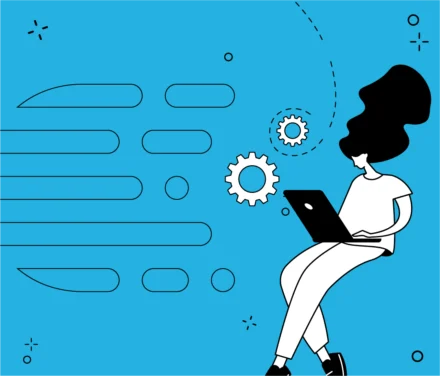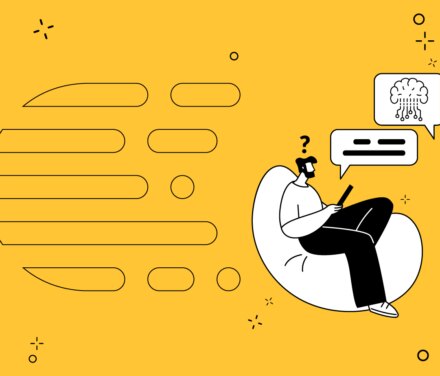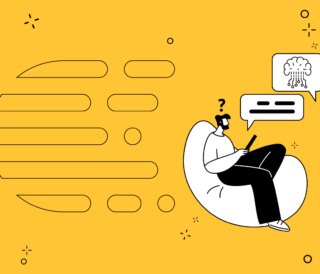In recent years, AI for business has transformed the global market. Thanks to platforms such as OpenAI’s Chat GPT, Microsoft Big AI, and Google Bard, artificial intelligence tools are now available to businesses of all sizes and industries. This accessibility has democratized the technology, allowing even small businesses to harness the power of AI to improve their operations.
For AI to be truly transformative, businesses have to see it as a tool to redefine their business models. Rather than being limited to automating tasks, AI opens up new possibilities, such as designing innovative products, personalizing services, and creating new user experiences.
For example, using OpenAI’s GPT can help companies create smarter, more personalized virtual assistants that provide customers faster and more accurate responses without human intervention. This personalization also extends to products and services, allowing companies to quickly adapt to changing market needs.
How does AI optimize processes and improve efficiency?
AI is a powerful optimization tool. Through predictive modeling, automation of repetitive tasks, and real-time analytics, companies can reduce costs and increase operational efficiency.
Platforms such as Chat GPT and Microsoft AI enable companies to integrate AI into key areas such as human resources, finance, and logistics. For example, OpenAI’s Chat GPT-3 can automatically generate reports and process large amounts of data, enabling companies to make more informed and faster decisions.

In finance, AI helps companies forecast demand, manage credit risk, and optimize investments, improving both profitability and financial sustainability.
Business applications of AI
- Personalized customer care with OpenAI: Companies are using OpenAI’s GPT to provide faster customer support with a much higher degree of personalization than traditional chatbots. This improves the user experience and increases customer satisfaction.
- Supply chain optimization: Retail and manufacturing companies are using AI to optimize their operations, forecast demand, and manage inventory more efficiently. This reduces costs and increases competitiveness.
- Product personalization: OpenAI can help companies recommend products to users based on their past behavior, improving conversion and retention.
How to effectively integrate AI into your business?
For AI to have a real impact on business models, it is not enough to implement it in isolated processes. Companies need to strategically integrate AI at all levels, from product development to customer experience.
It is important to invest in adequate training and resources to ensure that all employees are prepared to work with AI and can make informed decisions about it.
Suscribe to our newsletter!
What are the best AI tools for business?
- OpenAI GPT-4: Ideal for advanced chatbots, text analytics, and content generation.
- Microsoft Azure AI: Powerful for integrating predictive models and optimizing business processes.
- Google AI: Great for unstructured data analysis.
- BM Watson: Renowned for big data, business analytics, and process automation applications.
- Salesforce Einstein: Used to personalize services and products at scale, improving customer relationships.
The impact of OpenAI
As Forbes highlighted in one of its recent articles, OpenAI’s recent $6.6 billion funding round was a significant milestone in the AI space. With this investment, the company’s valuation has risen to $157 billion, nearly double what it was worth earlier this year. This growth reflects the tremendous impact OpenAI is having on businesses. As OpenAI transitions from a non-profit to a for-profit organization and continues to receive support from technology giants like Microsoft, the expansion of its accessible tools is driving companies to rethink how to strategically integrate the technology to harness its potential and transform processes.

The real value for businesses is no longer in the use of tools like OpenAI, but in how they deploy AI and the problems they solve. Companies need to see AI as a catalyst for innovation, not just a solution to make things faster or cheaper.
The Future of AI for Business
Much more than a passing trend, enterprise AI is the future of innovation and process optimization. Companies that understand its power will not only achieve greater efficiencies, but will also be able to deliver more personalized products, smarter services, and unique experiences to their customers.
At Crombie, we work to integrate AI into all business processes. We focus on understanding each customer, their needs and challenges. In this way, we ensure that artificial intelligence is optimally applied and transforms your business model.

At Crombie, we use artificial intelligence to empower businesses
We help companies scale with AI-driven solutions tailored to different challenges — from fraud prevention and regulatory compliance to price optimization and due diligence.













Leave a Comment